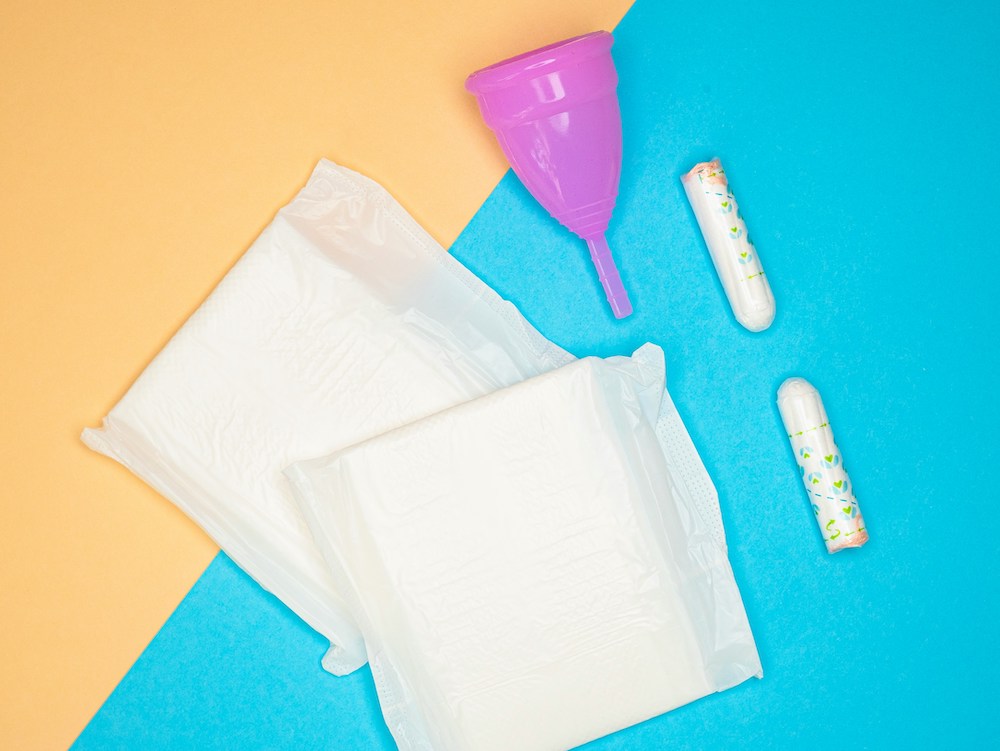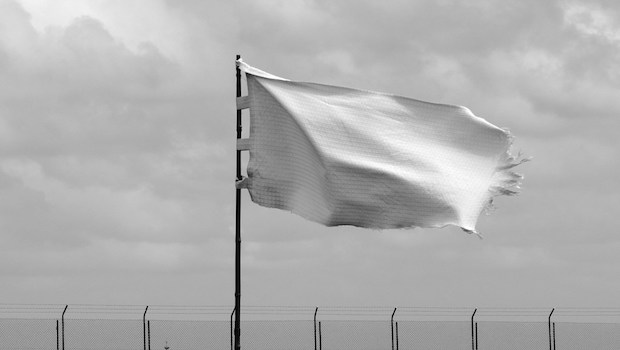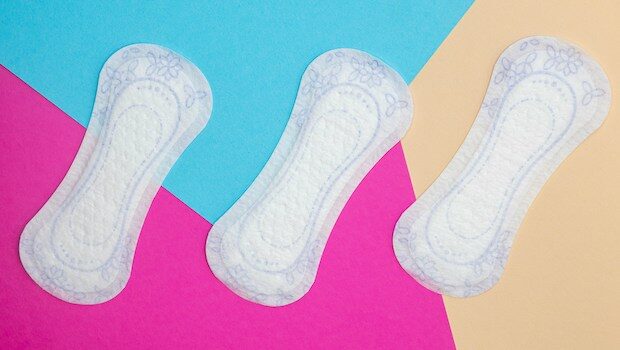The Obituary for My Uterus
I knew when it was coming when I heard a familiar knock on the door from an uninvited guest. About a week before I’d get my period, I’d get a migraine so bad I’d vomit. I’d wrap my swollen eyes with cool towels and while I laid on the couch listening to Law and Order: SVU, Mom would rub my back, trying her best to calm the jumping hormones that mixed inside me like oil and water.
I started going to the gynecologist when I was 12 years old. From the moment I got my period for the first time in my sixth grade gym class while wearing (of course) beige pants, I had a feeling that I wasn’t going to be like all the other girls, who could still wear white shorts and put tampons in when it was their “time of the month.”
By the time I was 13, I had developed a cyst the size of a clementine on my right ovary that made me hemorrhage for about three months. As I slowly started to turn gray from anemia, I didn’t realize how sick I really was. I still went out with my friends, had crushes on boys, and went to school every day. The only difference was I kept bleeding through my clothes every time I’d go for more than an hour without changing my overnight pad. The school nurse knew my name very well and I always carried a bag with extra pants with me everywhere I went. Mom would wash all my black pants every day after school and then put them neatly back in the bag. My friends let me borrow their sweatshirts to wrap around my waist if there was an accident, but I don’t remember them ever asking questions; they just knew I was sick.
As the awkwardness of adolescence was in full swing, I got sicker and weaker and couldn’t do gym class (which was a plus) and went to the doctor more than I went to school. I missed field trips, graduation breakfasts, school dances, and state exams. As I got poked and prodded, moving from doctor to doctor searching for answers, I bled heavier and heavier.
And then it got worse.

By the time I was 17, I’d had two procedures to remove cysts that continued to grow like unwanted fruit on my ovaries. I’d had to drink so much apple juice for the hundreds of pelvic ultrasounds that even the thought of it still makes my stomach turn. I was not cured by any means, but Dr. Ayres, the Head of Obstetrics and Gynecology at Robert Wood Johnson University Hospital, “graduated me” from her practice, hoping that maybe this was just a shitty part of puberty and now that I was fully developed, and potentially having sex, I would eventually be fine.
She was obviously wrong.
Since then, I’ve been under anesthesia four times, all for different but similar gynecological problems, always hoping for the same results: some kind of relief. Every time the surgeries would be successful, but they would not exactly have all the answers to the original question: Why was this happening to me? I went to church, I ate balanced meals, I went to the gym with my dad when I wasn’t feeling weak, I ate spinach and broccoli, and tried to limit salt. Mom found endocrinologists, hematologists, and gynecologists all across the state of New Jersey for me to visit, and it seemed that nothing was working. Brick wall after brick wall formed in front of us until finally, I thought I had to give up on the idea that things would ever get better, that this would just be who I would be forever.
After every procedure, I was relieved I was still alive. My heart didn’t stop beating during the surgery, and Mom never had to scream and cry and blame herself for not trying hard enough. For that I am grateful; grateful I found the strength to trust God and the doctors. But as they rolled me into recovery, there was always a part of me that was disappointed; disappointed that the doctors didn’t have God’s hands to heal me. I had to remember that they were just humans with their own hands and minds, families, and bodies. They were experts in the field of medicine of course, but they did not know enough to cure me or whatever God magically did for his people in the Bible. They just left me with their signatures on my skin and more questions.
When I met Dr. Seigelstein, I had already been bleeding for 60 days straight. It had been 15 years almost to the date of my original operation. The cysts on my ovaries had now developed into Stage 4 endometriosis with a combination of Stage 4 adenomyosis: a condition where the uterine lining grows into the muscle of the uterine wall developing a large chocolate-like (adenomyoma) tumor, filled with blood and tissue, and hydrosalpinx: a condition where fluid builds up in the fallopian tubes, causing them to become swollen like water balloons. My uterus was double the size it should have been, and we were running out of options. By this point, the adenomyoma had taken over the back of my uterus and my body transitioned into survival mode, attempting to birth the large mass that was once my uterus.
Animalistic, intuitive, fearful, instinctual, I was no longer in control of my body. This foreign being, this uninvited guest, this rotting piece of fruit was killing me from the inside out. Dr. Holden, my new reproductive endocrinologist, thought it would be a good idea to talk to Dr. Seigelstein, an invasive gynecological surgeon, to discuss the next stages of my care.
At that point, I knew that it was over. As I stared at Dr. Holden and asked, “What would you do?” she told me, through tears, to hold up the white flag. She knew how far I’d come, how long I had suffered, and how desperately I wanted something to work out. But she and I both knew there was nothing more to be done. We had to stop running and we had to call the time of death.

I had to make decisions that I never expected to make at 28 years old. I had to think about a family I wanted to have with a man I hadn’t yet met. At the time it was all an illusion, a metaphor far beyond my mode of thinking. My dreams of being a mom felt crippled, as well as my femininity, and the hope to have a baby was slipping through my fingers like sand. Despite the risk of the endometriosis coming back and depleting the few eggs that were left, I insisted on keeping my ovaries. That way I would maintain the option of having biological children, even if I couldn’t carry them myself. Even though I was taking a huge risk, I had to keep faith in God that the future would be brighter than this moment.
When the nurses rolled me into the recovery room, I was not fully awake, but I knew I was moving. The motion was like a wave moving up and down with the current of the long hallway. My body weight kept me from sinking into the plastic bed, through the floor, and to the parking deck below me. My eyes tried to flutter open but they were too weak. I was too weak to do anything but breathe, and I just laid there and let the current carry me, even though I was not sure of the destination, or even where I was at that moment.
The body has ways to express itself that seem to contradict logic. But, the body has its own logic. You can feel your heart actually break, even though you’d be dead if it was literally broken. The human body is as mysterious as the human mind. It has its own senses like a jellyfish, each tentacle becoming hyper-aware of any interruptions. The body must reassure the mind that you are not dead. Even when the mind thinks you are dying, the body must keep you alive anyway.

Mom recited the rosary in the waiting room of the Day Surgery Area while my aunt scrolled through Facebook, reading political articles and commenting on pictures of Donald Trump. As I laid there waiting for the valium to calm my racing heart, I felt my body come alive again. It felt like a summer morning. The air conditioning was blasting and the heart monitor above me was beeping, reminding me that I was alive. When I finally had the strength to open my eyes, Mom was sitting next to me, and we looked at each other as if we’d met for the first time. I was more relieved to see her than I was that it was over. We both cried in each other’s arms.
When I tell people my story, they say that I am brave, but I don’t feel brave. In situations like this, there aren’t any choices. When I sign the Consent of Care form, an approval of any procedure, I am putting my life in the hands of others; hands that hopefully have been touched by God so maybe I can come back and live a more fulfilling life.
I wouldn’t have believed that you could mourn for something that isn’t a sentimental being (like an organ) until I grieved for a part of me that went missing. Waking up the next morning, the sun was hanging low, almost touching the horizon line of the Shrewsbury River. The sky turned different shades of pink and purple. I knew it was almost 7 in the morning because I greeted this same sun every morning on my way to work. That morning I didn’t feel empty, more like put back together, stitched jaggedly like a rag doll. Dr. Seigelstein knocked on the door and I waved her in. Her wild curly mane bounced as she removed her mask from her face. She was smiling with all her teeth, relieved that it was all over, but was sad for me about the implications. The price of my fertility was worth the reward, finally being pain-free and turning off the faucet of the deluge. I smiled back because I knew we got through this together.






2 Responses to The Obituary for My Uterus